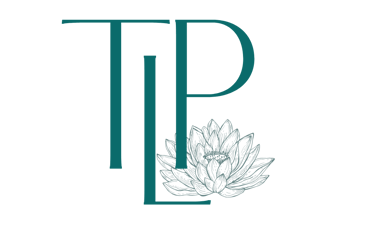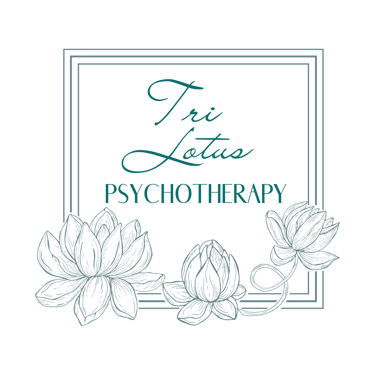NOW ACCEPTING NEW CLIENTS: In-Person in Calgary & Online across Alberta Book a Free 20min Introductory Call! CLIENT LOGIN
Navigating the World of Therapists, Psychologists, and Counsellors: Tips for Finding the Right Therapist in Alberta
This blog post guides readers on finding the right therapist in Alberta by explaining the differences between psychologists, counsellors, and mental health therapists. It also offers tips for selecting mental health services in Calgary based on qualifications, therapy styles, and practical factors like location and cost.
Kaylee Procter
10/7/2024


Finding the right therapist can be a crucial step in improving your mental health, but it’s not always easy to know where to start. With many options for therapy in Alberta, it’s important to understand the differences between mental health professionals and how to choose the best therapist for your needs. In this guide, I’ll walk you through how to find a psychologist in Calgary and what to consider when exploring therapy and mental health services in Alberta.
1. Identify Your Needs
The first step in finding the right therapist is identifying what you're seeking help for. Are you dealing with anxiety, depression, relationship issues, or trauma? Different therapists specialize in various areas of mental health. In Alberta, there are a wide range of mental health services available, and narrowing down your specific concerns can help you select the best-fit psychologist or counsellor.
Additionally, are you looking for individual, family, or couples therapy? Ensure that you choose a therapist that specializes in whichever area you are looking for.
2. Understand the Differences Between Psychologists, Counsellors, and Mental Health Therapists
In Alberta, several types of professionals offer mental health support, but it’s important to understand the distinctions between them to make an informed choice.
Registered Psychologists: A psychologist in Alberta is registered and regulated by the College of Alberta Psychologists. They are highly trained, holding at least a master's degree in psychology. It is a requirement for them to have completed 1600 hours of practice post graduation, 107 hours of clinical supervision, and two licensing exams in order to be fully registered. Psychologists typically specialize in assessment, diagnosis, and treatment of mental health disorders and use evidence-based therapies like Acceptance and Commitment Therapy and Emotion Focused Therapy to address a range of issues, including anxiety, depression, relationship issues, stress management, and trauma.
Registered Provisional Psychologists: Provisional Psychologists in Alberta are registered and regulated by the College of Alberta Psychologists. They hold at least a master's degree in psychology. Provisional Psychologists are on their way to becoming fully registered by undergoing their post graduate 1600 hours of practice, clinical supervision, and licensing exams. When you book with a Registered Provisional Psychologist they will undergo clinical supervision where a Registered Psychologist will give them feedback and insight on their cases (this happens in 1:1 supervision, not while they're in the session with you). It can be like getting two psychologists for the price of one! They can address the same concerns as a fully Registered Psychologist.
Counsellors: Counsellors typically hold a master's degree in counselling psychology or a related field. In Alberta, counsellors may be regulated by professional bodies such as the Canadian Counselling and Psychotherapy Association (CCPA). They focus on providing support through talk therapy and can assist with life challenges like relationships, stress, and personal growth. There is no licensing exam or clinical hours needed post graduation to be registered with the CCPA.
Mental Health Therapists: This title can refer to a variety of professionals, including social workers, psychiatric nurses, or counsellors who provide therapy. They may or may not be registered with a specific regulatory body, depending on their qualifications. Mental health therapists often offer therapeutic support and interventions for managing mental health issues, but they may not conduct the formal assessments that psychologists do.
When searching for therapy in Calgary, it’s crucial to check the credentials and specialization of the therapist to ensure they align with your needs.
3. Research Your Options
Once you’ve identified your goals and understand the types of professionals available, it’s time to research terms like, Psychologist near me, Calgary therapist, or Anxiety therapy in Calgary. You can also use online directories like the Psychologists’ Association of Alberta, which lists licensed professionals across the province. Websites like Psychology Today can also be helpful for this. Additionally, many therapists have websites that detail their areas of expertise and therapy approaches, which can be helpful when comparing counselling options.
4. Check Qualifications
In Alberta, it’s important to ensure your therapist is properly qualified. When searching for therapy in Calgary, make sure the therapist you’re considering is a registered psychologist, social worker, or licensed counsellor. These professionals meet the necessary standards set by Alberta’s regulatory bodies. You can also verify their qualifications through the Psychologists’ Association of Alberta, College of Alberta Psychologists, Canadian Counselling and Psychotherapy Association or other relevant bodies.
5. Practical Considerations: Location, Availability, and Cost
When searching for mental health services in Calgary, practical considerations matter:
Location: Is the therapist’s office accessible from your home or workplace? Many psychologists in Calgary offer virtual therapy sessions, which can be convenient for busy schedules or those living in rural Alberta.
Availability: Does the therapist have appointment times that suit your schedule? How far are they booking out? How difficult is it to get a session?
Cost: Therapy can be an investment in your well-being. Check if the therapist’s rates fit within your budget or if they offer sliding scale fees. Some extended health plans in Alberta cover therapy sessions, so check with your insurance provider to see what’s covered.
6. Trust Your Gut
Lastly, trust your instincts. Most Alberta psychologists will offer a complimentary introductory call where you can ask any questions you have and get a feel for the therapist. Use this! The right therapist will make you feel comfortable, respected, and understood, even in the consultation call.
If you decide to book and after a few sessions you feel that the therapist isn’t a good fit, it’s okay to explore other counselling options.
Conclusion
Finding the right therapist in Alberta can be a transformative step in your mental health journey. Whether you’re seeking help in managing stress, working through trauma, or improving your relationships, there are many qualified professionals offering therapy in Calgary and throughout Alberta. By taking the time to identify your needs, research your options, and consider practical factors, you can find a psychologist, counsellor, or mental health therapist who meets your unique needs and helps guide you toward greater well-being.
Tri Lotus Psychotherapy has licensed Registered Psychologists who offer a complimentary 15-minute phone consultation to determine fit. Reach out today if you need support!
Let's Connect
Please fill out the form to request an initial appointment
or complimentary introductory call
Contact
hello@trilotustherapy.com
Clinic Hours
Monday: 5:00pm to 8:00pm
Tuesday: 1:00pm to 8:00pm
Wednesday: 8:00am to 8:00pm
Thursday: 8:00am to 8:00pm
Friday: 11:30am to 4:30pm
Saturday: 9:00am to 3:00pm
Copyright © 2025 by Tri Lotus Psychotherapy - All Rights Reserved


Land Acknowledgment: I gratefully acknowledge and honour that where I live, work and play is within the traditional territories of the people of the Treaty 7 region in Southern Alberta, which includes the Blackfoot Confederacy (comprising the Siksika, Piikani, and Kainai First Nations) as well as the Tsuut’ina First Nation, and the Stoney Nakoda (including the Chiniki, Bearspaw, and Wesley First Nations); and Métis Nation of Alberta, Region 3. The traditional Blackfoot name of this place is “Mohkinstsis”, which is also known now as Calgary.

